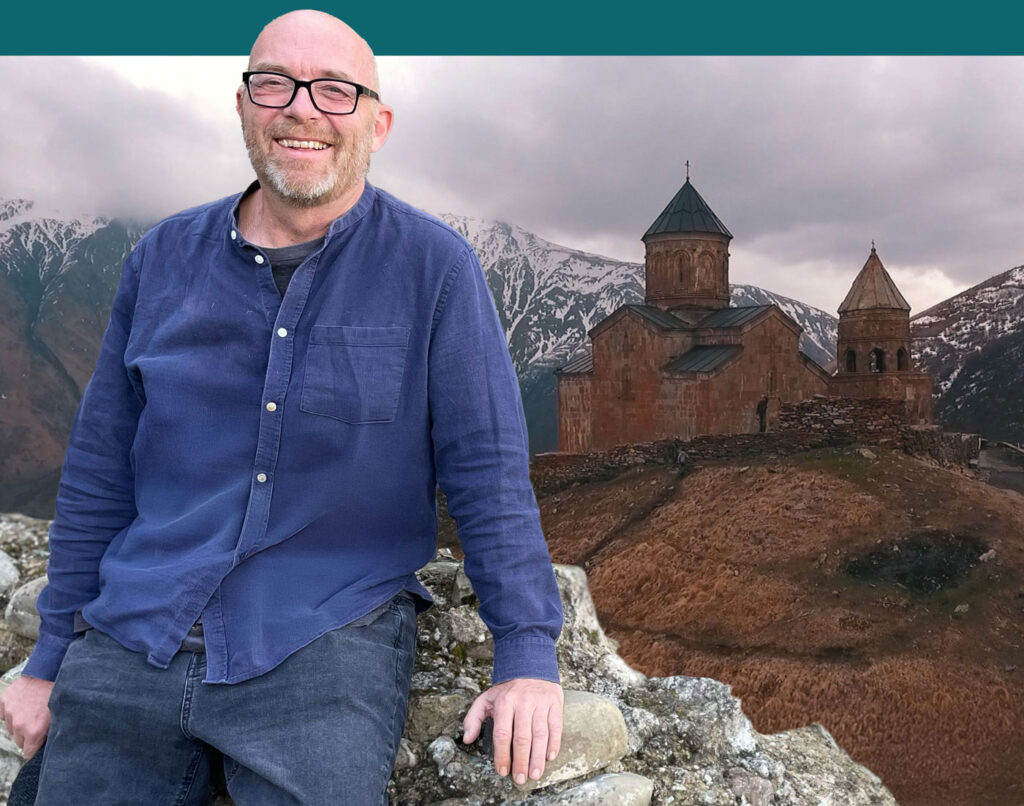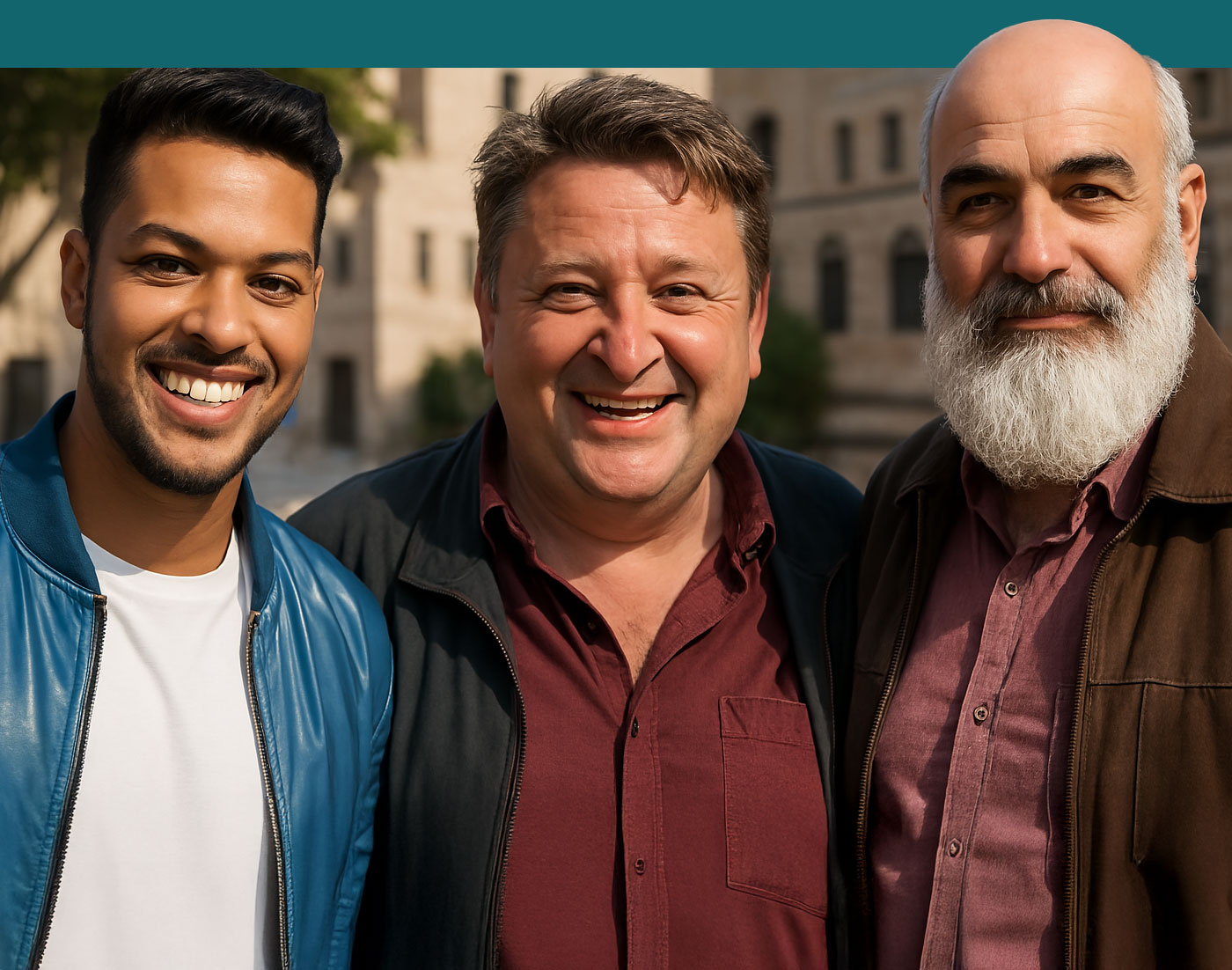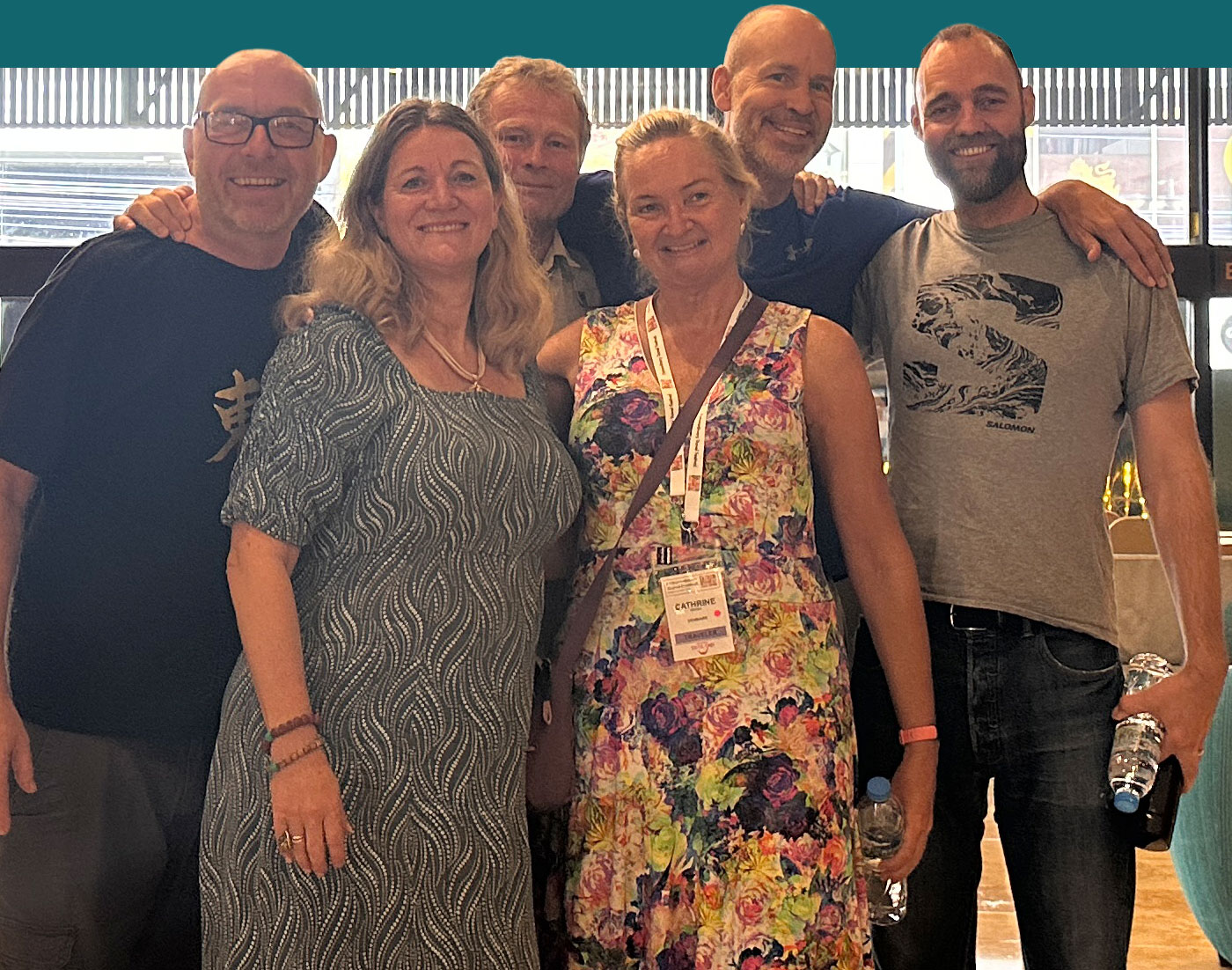In this episode of The Radio Vagabond, we’re heading north from the lively capital of Tbilisi to explore the incredible natural beauty of Georgia, as well as its fascinating wine culture. Georgia isn’t just known for its stunning landscapes; it’s also the birthplace of wine, with winemaking traditions that go back over 8,000 years.
We’re about to uncover the magic of Georgia’s wine, its breath-taking mountains, and more. So, buckle up as we take you through the cradle of wine.
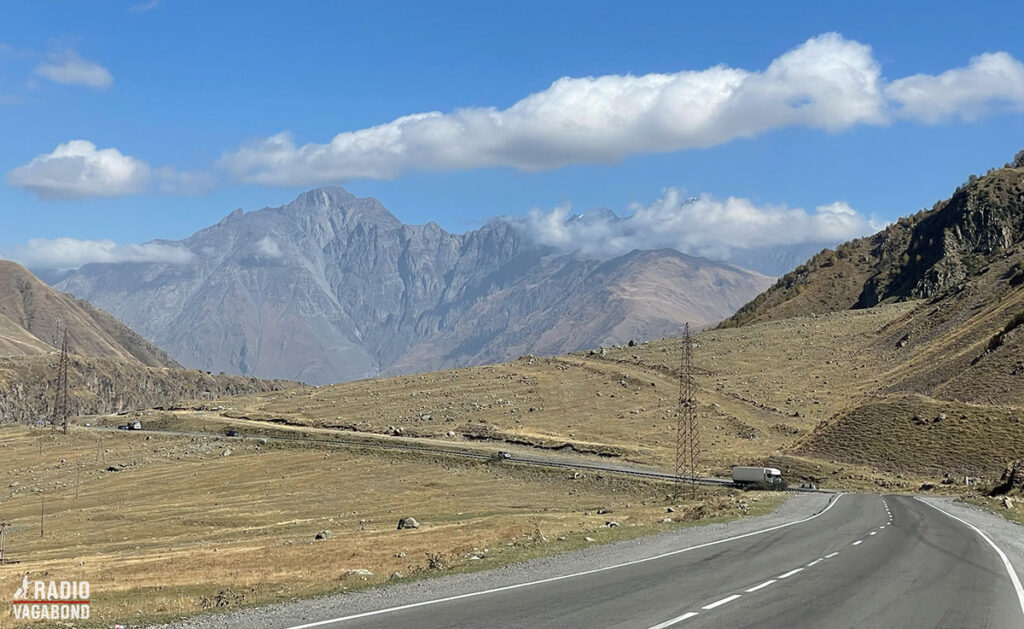
Doctor’s Orders: Drink Lemonade
Normally, Cynthia doesn’t say no to a glass of wine now and then, but the doctor at the hospital gave her a clear instruction: “No alcohol for a week after the operation.” So, she’s been enjoying a lot of Georgian lemonade instead. This will make more sense when you hear all about what she’s been through with the treatment of her arm. That’s coming up in a special episode where we dive deeper into all of it.
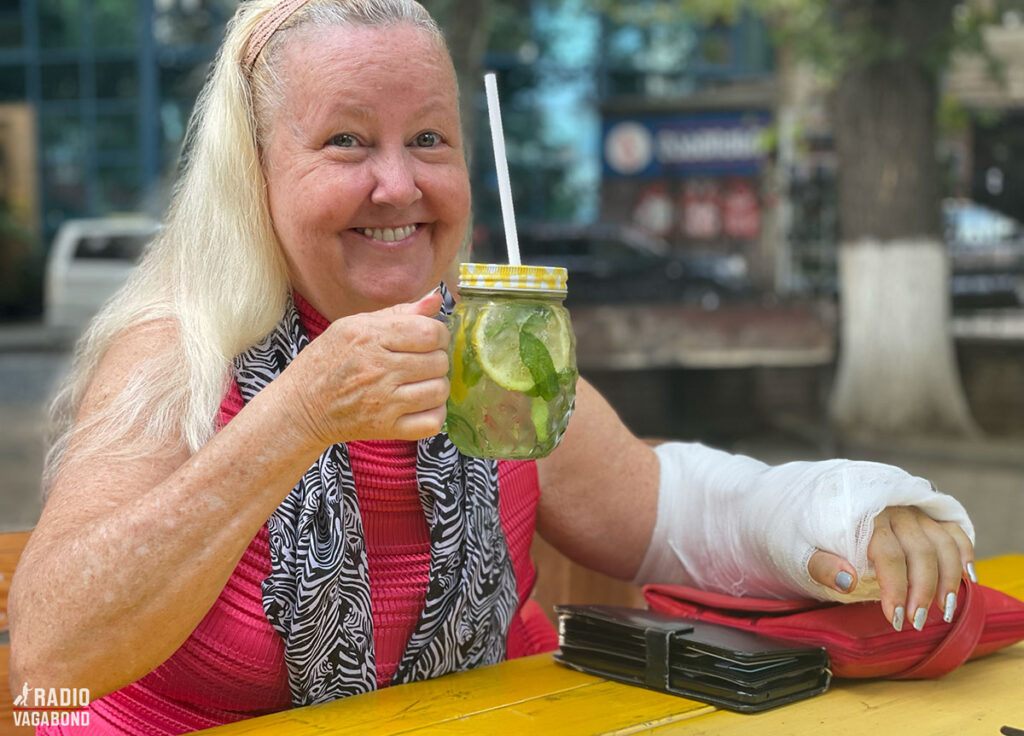
She’s counting down the days when we can go on a wine tasting here in the country they call, The Cradle of Wine.
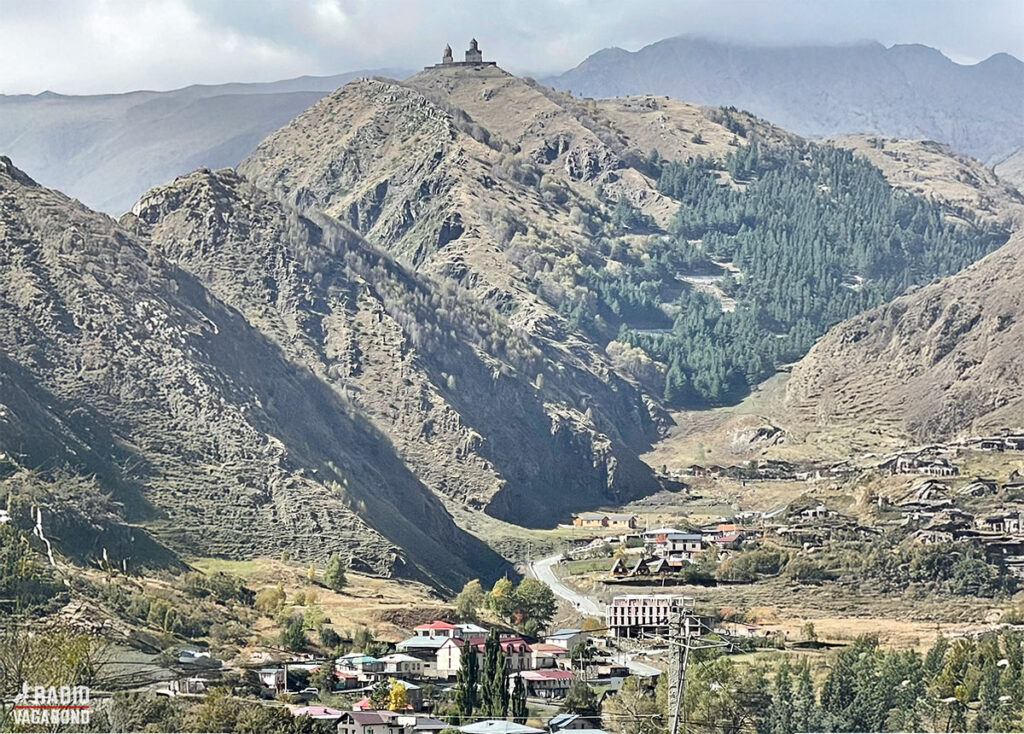
Chasing Georgia’s Icon:
The Adventure to Gergeti Trinity Church
Our road trip kicks off as we head north towards Stepantsminda, a picturesque town located almost three hours from Tbilisi, just 12 kilometers from the Russian border. This place feels like it’s at the edge of the world – surrounded by the towering peaks of the Caucasus Mountains, it’s the perfect escape into nature. But the real draw here is the Gergeti Trinity Church, one of Georgia’s most iconic landmarks.
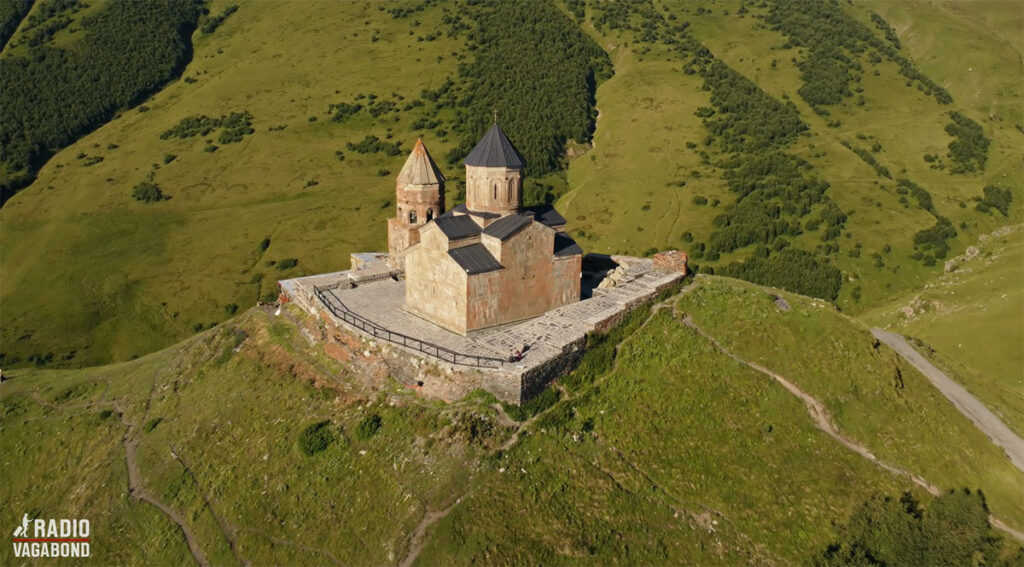
Built in the 14th century, this ancient stone church sits high on a hill at about 2,170 meters (7,120 feet) above sea level, with the majestic Mount Kazbek in the background. You’ll recognize it from countless travel books and postcards – it’s the picture-perfect image of Georgia.
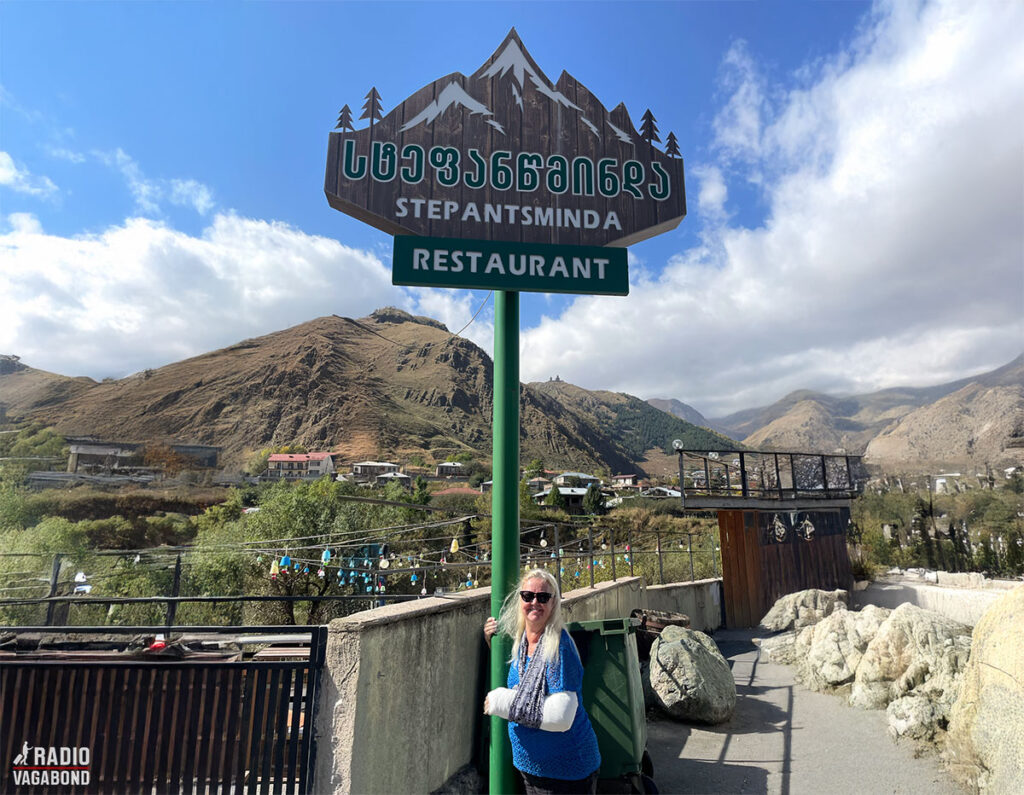
Getting to the church, however, isn’t as easy as Google Maps might suggest. Sure, you can drive most of the way, but it takes a 4×4 and some steady nerves on those winding roads. Alternatively, you can hike, which takes about 1.5 to 3 hours depending on how fit you are. We decided to give it a try but ended up waving the white flag halfway. Cynthia was still recovering from her accident in Baku, so a steep climb wasn’t exactly ideal.
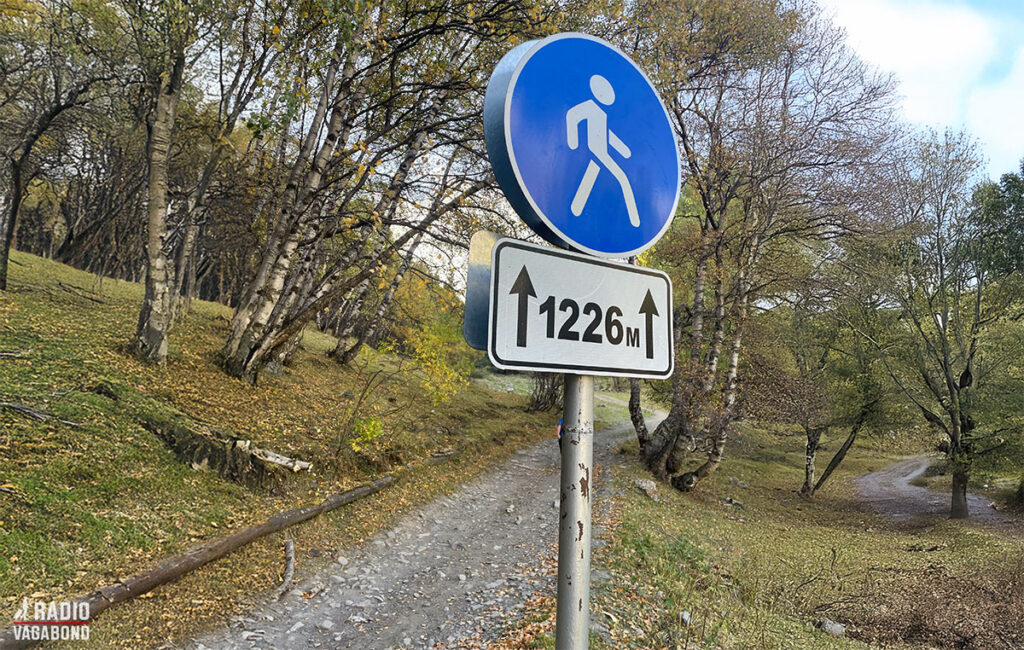
But if you love nature, this hike alone is worth the trip to Georgia. The air feels fresher, the views are endless, and you’re surrounded by the pure, untouched wilderness that makes you feel like you’ve stepped into a different world. It’s both stunning and humbling, all at once.
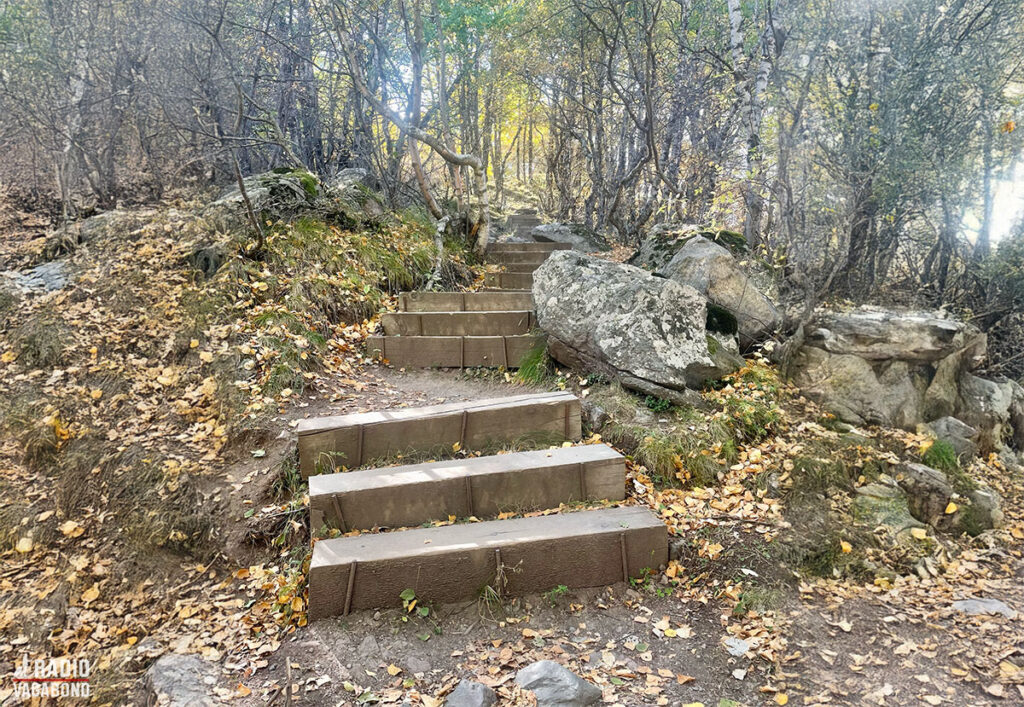
WHO ARE YOU?
Please spend five minutes taking a the survey – tell me a bit about who you are and what you would like more or less on here on The Radio Vagabond.
On the Edge:
A Wild Drive Through the Caucasus to the Russian Border
Driving up the E117 road from Stepantsminda towards the Russian border is like entering another world. The towering Caucasus Mountains rise dramatically around you, their peaks cutting into the sky. The road twists and turns alongside cliffs, green valleys, and the rushing Terek River, giving the whole journey a wild, untamed feel.
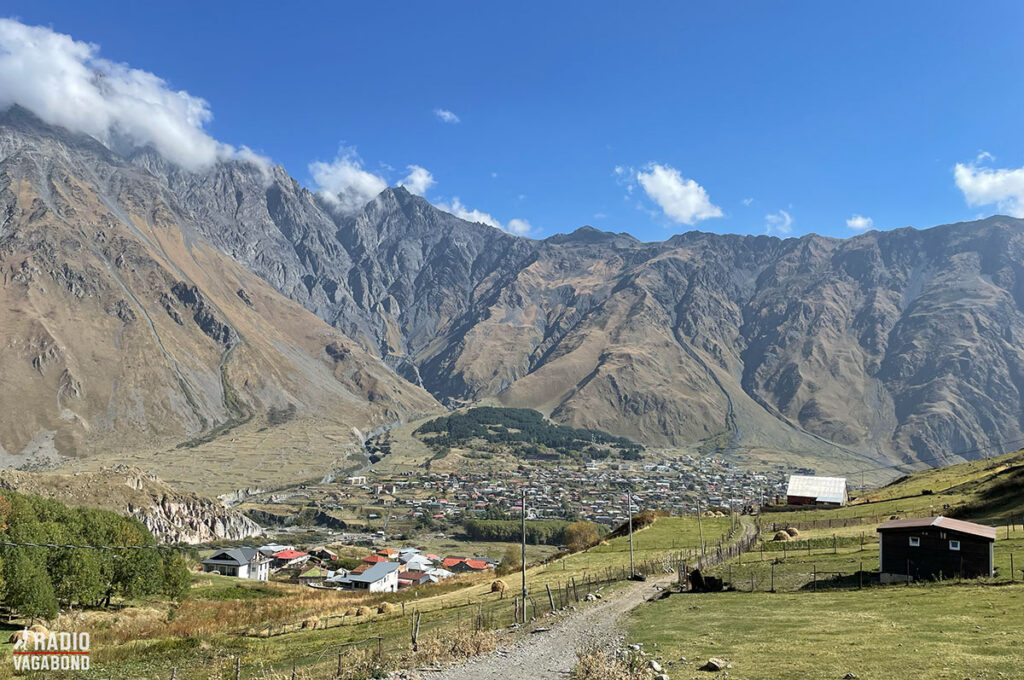
The landscape feels raw and untouched, with tiny villages appearing like dots in the vastness. Nearing the border, the scenery becomes even more remote and desolate, the mountains closing in, making you feel small in the face of nature’s grandeur. It’s both breath-taking and eerie – the perfect road to nowhere. Well, the road to Russia.
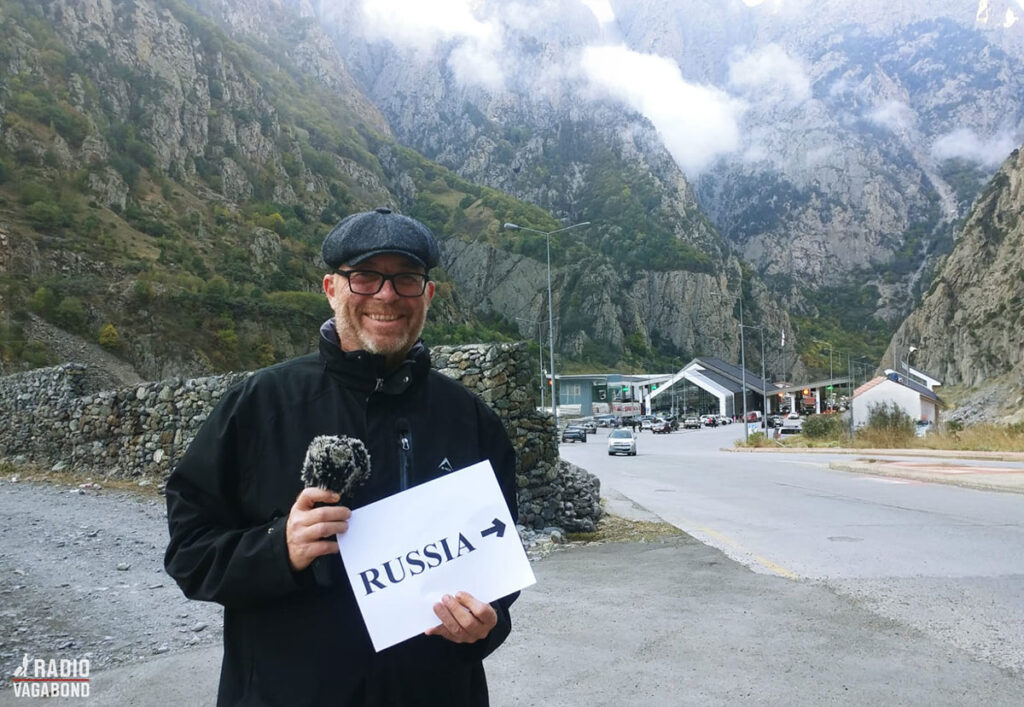
A LOOK IN THE HISTORY BOOK
The Cradle of Wine is not just a catchy title; they’ve been making wine here since before the pyramids were built. Georgia’s love affair with wine goes back over 8,000 years. The region is widely considered one of the earliest places where humans first domesticated grapevines and started fermenting them into wine. Archaeologists have found ancient clay vessels, known as qvevris, with remnants of grape residue, proving that winemaking in Georgia is truly ancient.
What makes it special, you ask? It’s all in the method. Unlike the more modern winemaking techniques we know today, Georgians have kept their old-school way of using these massive, egg-shaped clay pots (qvevris). They bury them underground, fill them with grape juice, skins, and seeds, and let nature take its course. This process allows the wine to ferment naturally, giving it a distinct flavor that’s earthy, full-bodied, and – well, let’s just say it packs a punch.
Georgia’s unique climate, with its warm sun and cool mountain air, creates the perfect conditions for growing hundreds of grape varieties, many of which you won’t find anywhere else in the world. That’s why it’s not just “wine” here – it’s a cultural institution, a big part of social gatherings, and something Georgians are incredibly proud of.
So, next time you sip on a glass of Georgian wine, remember, you’re drinking a little piece of history – a tradition that’s been passed down through millennia and continues to be celebrated in the hills of this beautiful country.
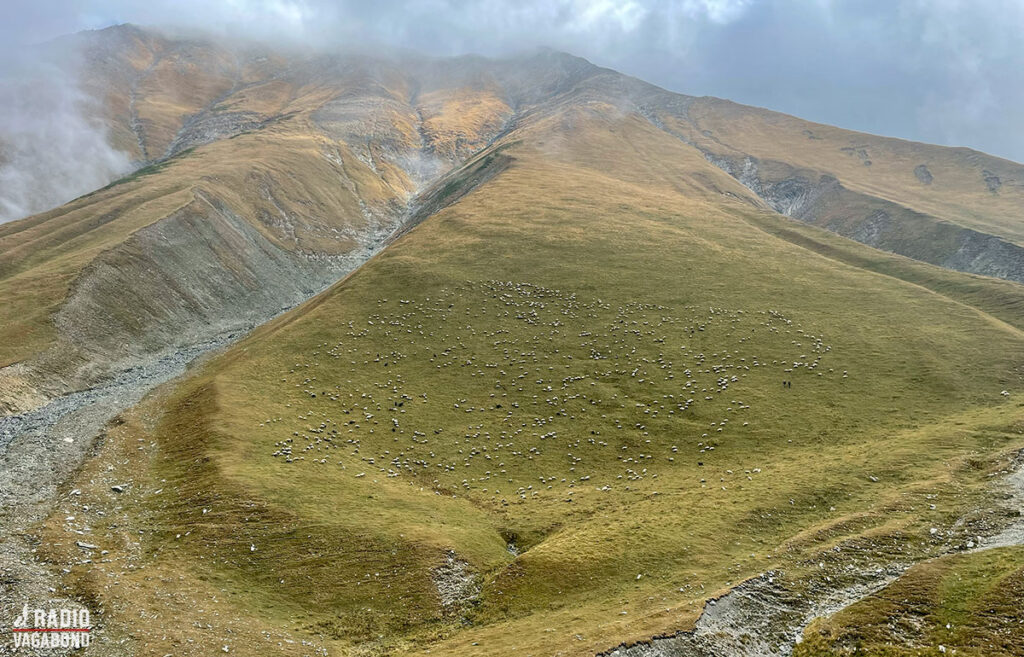
Wine Tasting
Next, we moved from the mountains to the vineyards. Georgia proudly claims to be the birthplace of wine, and they’re not exaggerating. This country has been producing wine for over 8,000 years, which makes it one of the oldest winemaking traditions in the world. And, as you might have guessed, they take their wine very seriously here.
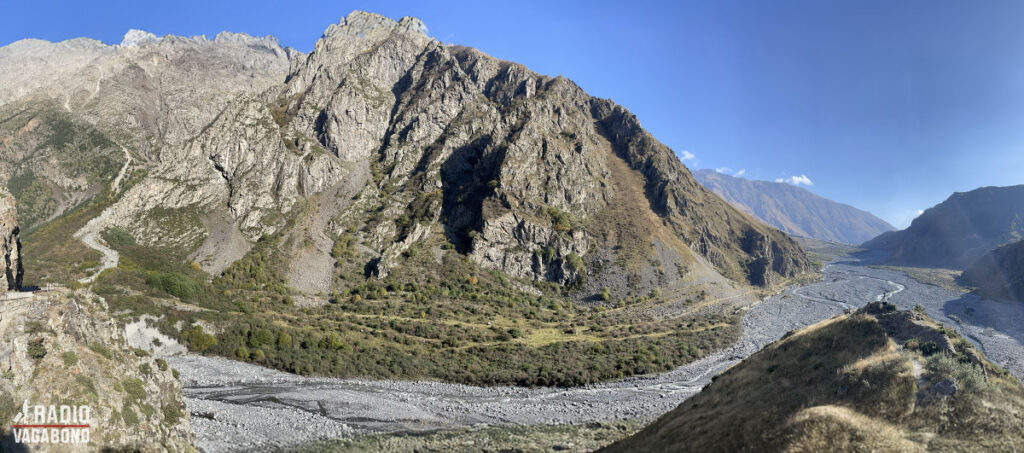
The traditional method of winemaking in Georgia is unique and fascinating. They use large clay vessels called qvevri that are buried underground to ferment the wine. This ancient method has been passed down through generations and is still widely used today. It gives Georgian wine a distinct flavour that you won’t find anywhere else.
We visited Rostomaant Winery in in Telavi; a charming town located a couple of hours east of Tbilisi. It’s one of the family-run vineyards in the Kakheti region, where we got to experience this ancient process first-hand. The owners were incredibly welcoming and eager to share their passion for winemaking. The tasting itself was an adventure, with wines that ranged from the typical whites and reds to the more traditional amber wines – a Georgian specialty made from white grapes fermented with the skins, giving it a rich, amber colour.
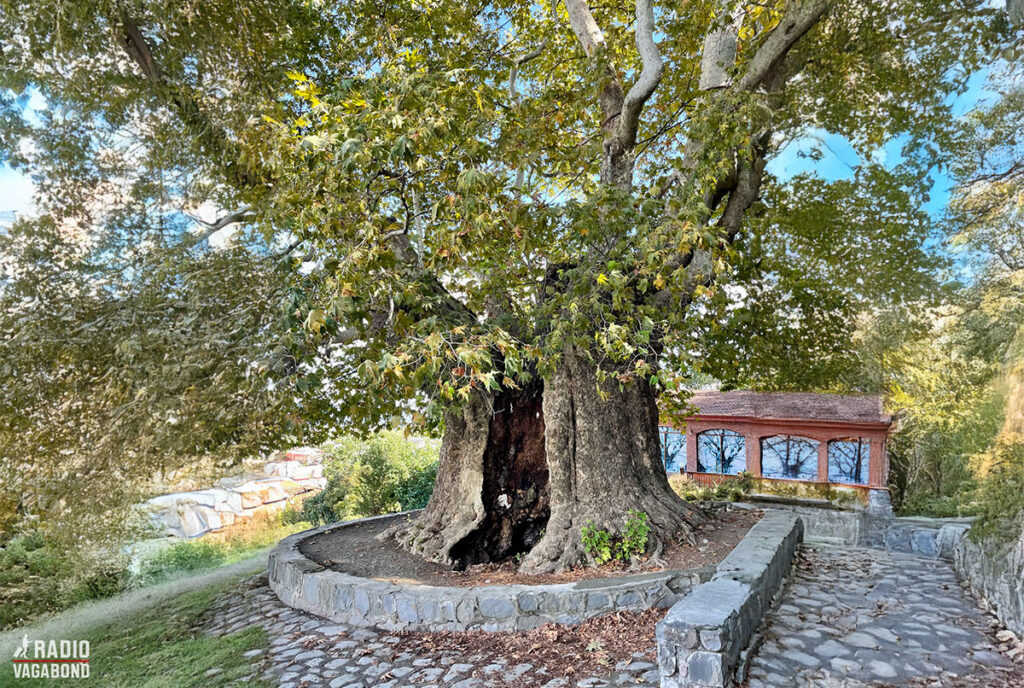
The current owner, Ika Rostomashvili, took us through a tour, explaining how the qvevri are made and buried, and why this method is so integral to their culture. It was clear that winemaking here isn’t just about the drink – it’s a way of life. The wine was as diverse and complex as the country itself, and after a few glasses, we were convinced that Georgia’s reputation as the cradle of wine was well-deserved.
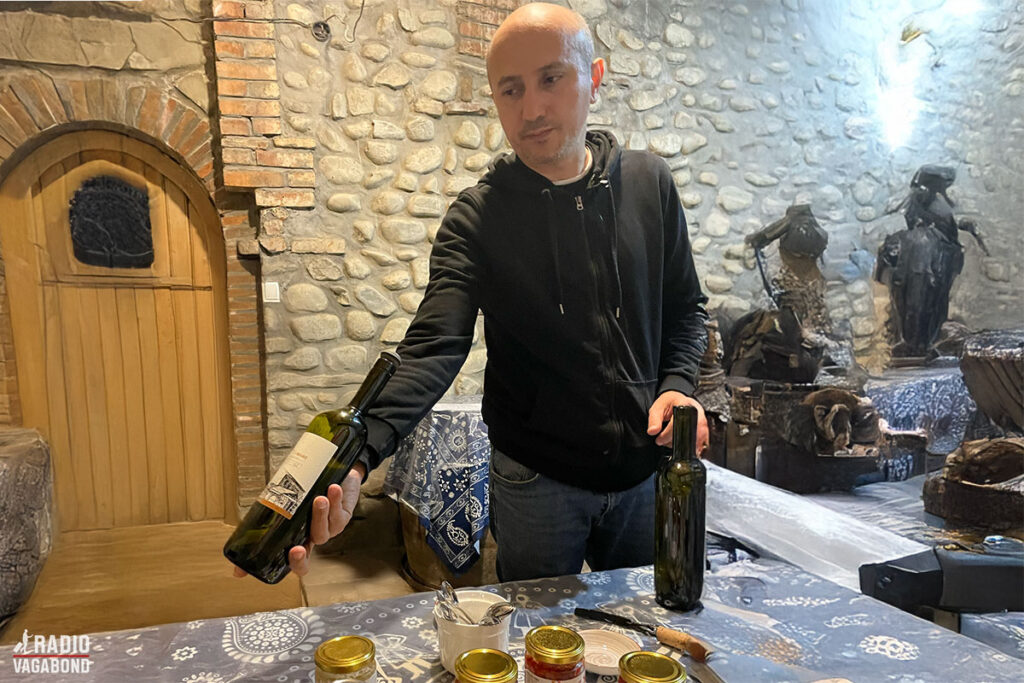
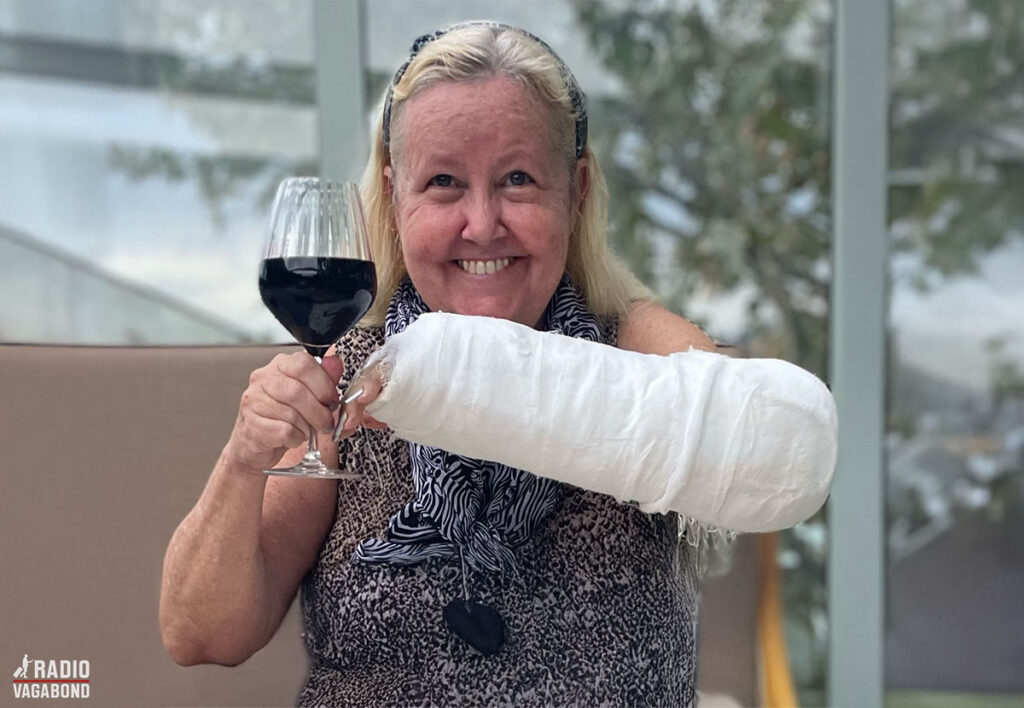
Rostomaant Marani may be small, but they’re dedicated to producing natural, high-quality wines using a technique recognized by UNESCO as part of Georgia’s cultural heritage. Their wines are a true reflection of Georgia’s long-standing relationship with winemaking.
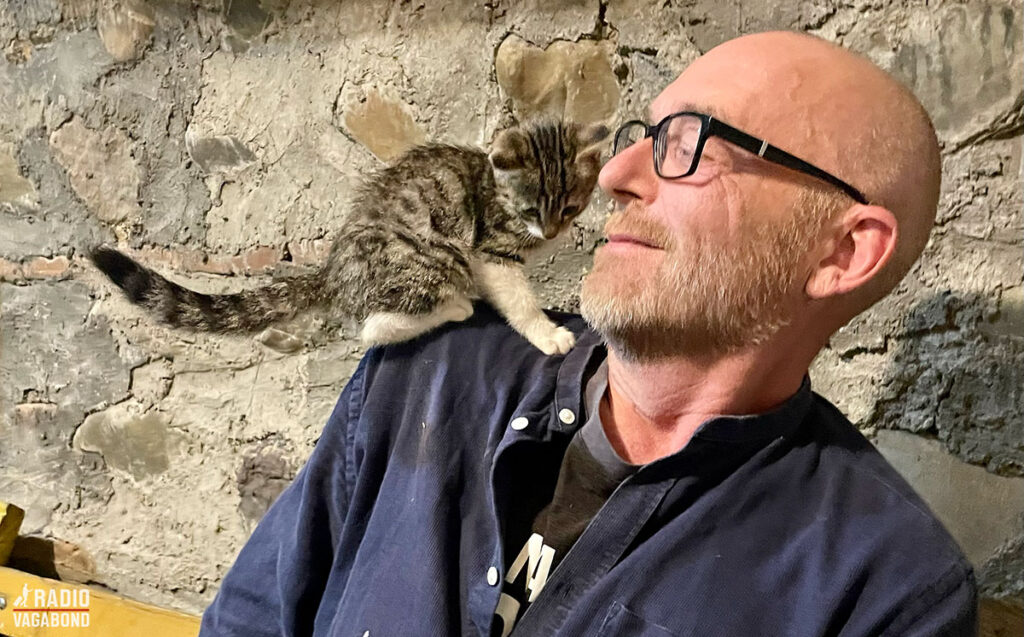
Whether you’re a fan of natural wines or just curious about trying something unique, this family-run winery offers a one-of-a-kind experience steeped in history, tradition, and a whole lot of passion for the craft.
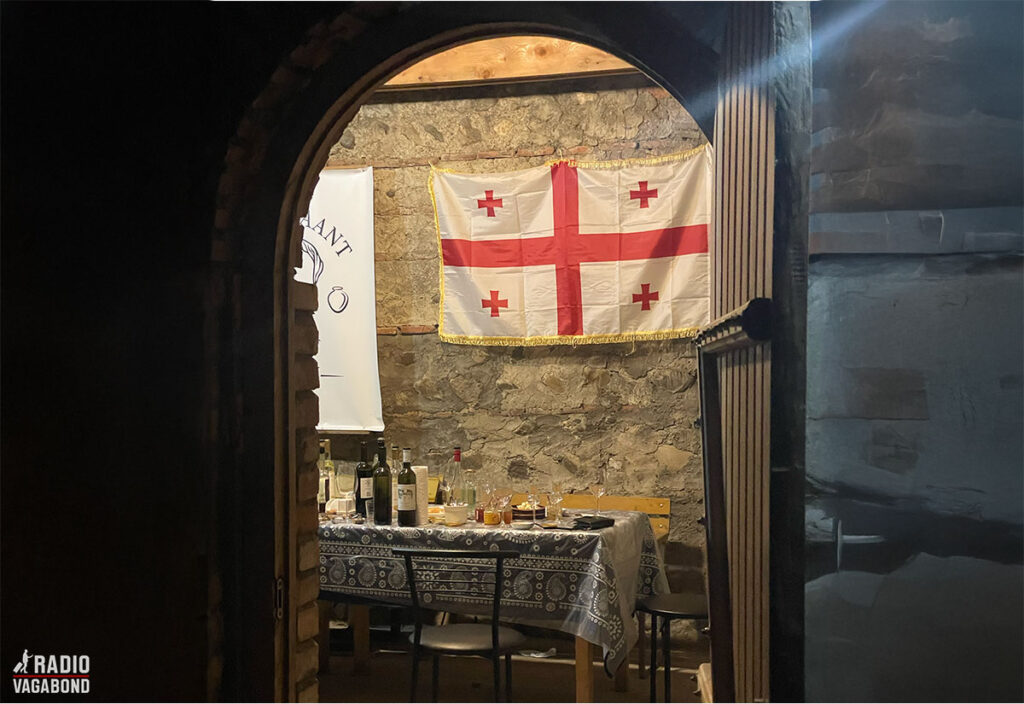
Here’s how to get in touch with Rostomaant Marani and book your own visit:
WhatsApp: +995 599 929 505
E-mail: RostomaantMarani@gmail.com
Website: RostomaantMarani.ge
Address: 11 Rcheulishvili street, Telavi 2200, Georgia
More to come in a few days
And that’s it for this episode, but already in a few days you will have a special episode about our first week in Georgia, where Cynthia went to the hospital to get surgery for her arm that was badly injured in Azerbaijan when she was hit by a car. It’s all about finding and going to a hospital in a foreign country. So, it’s a bit different than the regular episodes, but I think you’ll find it interesting. That’s in a few days.
My name is Palle Bo, and I gotta keep moving. See you.
I WOULD LIKE TO HEAR FROM YOU!
Please tell me where are you and what are you doing as you listen to this episode? You can either send me an email on listener@theradiovagabond.com, go to TheRadioVagabond.com/Contact or send me a voice message by clicking on the banner.

Either way, I would love to hear from you. It’s so nice to know who’s on the other end of this.
SPONSOR
A special thank you to my sponsor, Hotels25.com, who always provide me with the best, most affordable accommodation wherever I am in the world.
Hotels25 scans for prices on the biggest and best travel sites (like Booking.com, Hotels.com, Agoda and Expedia) in seconds. It finds deals from across the web and put them in one place. Then you just compare your options for the same hotel, apartment, hostel or home and choose where you book.
When you book with Hotels25, you get access to 5,000,000 hotel deals. And it’s “best price guaranteed.”
PRODUCED BY RADIOGURU
The Radio Vagabond is produced by RadioGuru. Reach out if you need help with your podcast.

